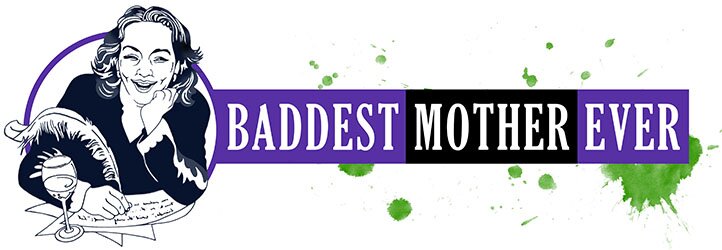
I used to have a bad habit of flipping to the last page of a new book and reading the last sentence first. It’s not usually a spoiler, because I don’t read a lot of mystery or suspense, but reading the last sentence gave me a general idea of where the author plans to take me. Here’s the last sentence of Luvvie Ajayi’s new book “I’m Judging You: The Do Better Manual”:
“We just need to start now. We can start doing better any time we want.”
Amen. Don’t let the title scare you off–Luvvie’s judgement is cast far, wide, and right in the mirror too. In four sections, the mind and tongue behind Awesomely Luvvie lays out the myriad ways we are not living up to our full potential.
In Life, she had me laughing about these awful people we all know: Dinner Scrooges, Lannister Friends, otherwise sensible friends who have fallen under the spell of Island Peen, booty-hole bleachers, and the fun house mirror culture that calls a size 4 actress “curvy.” This section is classic Funny Awesomely Luvvie. I laughed, but I kept waiting for the insight that I know she can deliver.
And that insight knocked me on my ass in the section on Culture. Luvvie lays it out. Racism isn’t just white hoods and burning crosses. Privilege isn’t nullified if you have to work for a living and studied hard in school. The single story of Africa that we’ve been sold (or clung to because it’s comfortable) is a farce. Rape culture is real and #YesAllWomen. Feminism, homophobia, the frailties of religion–it’s all in there. This is the section that I read slowly so I could learn from a friend who’s not much like me. For example, I know intersectionality is a problem in feminism–the goals of Feminism have often been the goals that benefitted white, hetero, cis-gendered, Western, Christian the most. Luvvie makes it so concrete:
“The misogyny that white women get looks different from ours, and our struggles aren’t in the same box. They might be called “bitch,” but we get called “nigger bitch.” They might make 77 cents for every dollar that a white man makes on the job, but a Black woman gets only 64 cents out of that white man’s dollar.”
If you’re starting to think that this book might be too heavy for the end of summer, Nope. Here’s how Luvvie, a Christian, takes down those who cling to one verse in Levviticus as the foundation of their homophobia but skip over the verses about shellfish, tatoos, and poly cotton culottes:

Leviticus, my ass.
The section on Social Media should be a must-read for any child who is about to be given a phone of their own. #WeMustThinkOfTheChildrenForTheyAreTheFuture. We must also put a stop to #HashtagAbuse (#hash #tag is a totally different topic and actually kind of fun, but messy). We all need to get some behavior when it comes to Facebook oversharing, flirting on LinkedIn, falling for fake news, or curating a life made of eSmoke and eMirrors.
And all of that wisdom (and side-eye) leads to the final section of “I’m Judging You”…Fame. Luvvie is famous. She started out Internet-famous and now she’s getting to be famous-famous. She drops some facts about microwave fame, sex-tape fame, reality show fame…all forms of Lame Fame (TM Baddest Mother Ever, all rights reserved).
So what ARE we to do?
- Buy the book and enjoy laughing and learning with Luvv.
B. Call out foolishness in all its forms. We all have a platform and a sphere of social influence. Your influence may reach thousands, or it may reach a circle of friends and family. Expect better. Shut down the fat jokes. Call out the casual racism. Speak out on that board you’re on or the club you’re in or the school where you work and speak up for inclusion. Vote. Vote with your dollars and your voice.
iii. Get creative when it comes to spelling. I’m talmbout expanding your vocabulary as much as you worry about alphets. Learn words like “yansh” and “mtchew” and “minuswell.” We often have to search for new words to match our growing world views. Skim the footnotes, iSweaterGawd.
2a. Start doing better. We can start now.
V. One more thing. I started following Luvvie so I could learn how she creates success (and for Game of Thrones recaps). She’s been doing this social networking game since Facebook had 20 members and two of them were those Ken Doll twins. I’ve learned that it’s not all magic. There’s a good bit of magic, but there’s a shit-ton of WORK. Hustle. Consistency. Drive. Determination. All those football coach words. I’m learning to believe in myself. It might take a few more years, but this thing I wrestle with on the weekends is going to be a book one day.
Until then, click the cover to order “I’m Judging You” for yourself!
(This is an affiliate link.)














